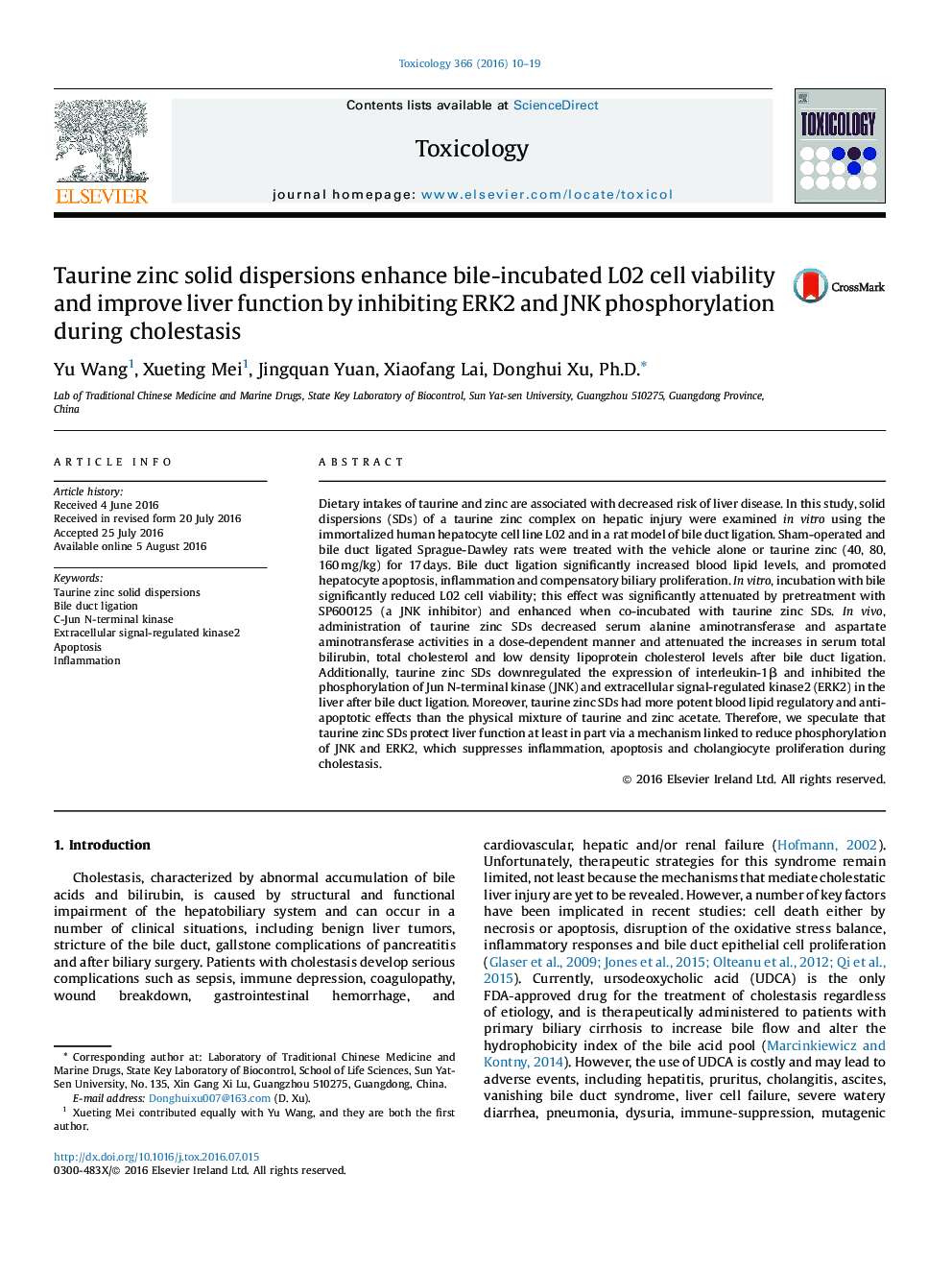| Article ID | Journal | Published Year | Pages | File Type |
|---|---|---|---|---|
| 2595395 | Toxicology | 2016 | 10 Pages |
•Taurine zinc SDs could prevent the bile-induced reduction in L02 cell viability.•Taurine zinc SDs can prevent cholestatic liver injury.•Taurine zinc SDs can inhibit BDL-induced hepatocyte apoptosis.•Taurine zinc SDs shows the cholesterol-lowering effects on cholestasis.•Taurine zinc SDs may suppress inflammation via dampening JNK phosphorylation.
Dietary intakes of taurine and zinc are associated with decreased risk of liver disease. In this study, solid dispersions (SDs) of a taurine zinc complex on hepatic injury were examined in vitro using the immortalized human hepatocyte cell line L02 and in a rat model of bile duct ligation. Sham-operated and bile duct ligated Sprague-Dawley rats were treated with the vehicle alone or taurine zinc (40, 80, 160 mg/kg) for 17 days. Bile duct ligation significantly increased blood lipid levels, and promoted hepatocyte apoptosis, inflammation and compensatory biliary proliferation. In vitro, incubation with bile significantly reduced L02 cell viability; this effect was significantly attenuated by pretreatment with SP600125 (a JNK inhibitor) and enhanced when co-incubated with taurine zinc SDs. In vivo, administration of taurine zinc SDs decreased serum alanine aminotransferase and aspartate aminotransferase activities in a dose-dependent manner and attenuated the increases in serum total bilirubin, total cholesterol and low density lipoprotein cholesterol levels after bile duct ligation. Additionally, taurine zinc SDs downregulated the expression of interleukin-1β and inhibited the phosphorylation of Jun N-terminal kinase (JNK) and extracellular signal-regulated kinase2 (ERK2) in the liver after bile duct ligation. Moreover, taurine zinc SDs had more potent blood lipid regulatory and anti-apoptotic effects than the physical mixture of taurine and zinc acetate. Therefore, we speculate that taurine zinc SDs protect liver function at least in part via a mechanism linked to reduce phosphorylation of JNK and ERK2, which suppresses inflammation, apoptosis and cholangiocyte proliferation during cholestasis.
Graphical abstractFigure optionsDownload full-size imageDownload as PowerPoint slide
